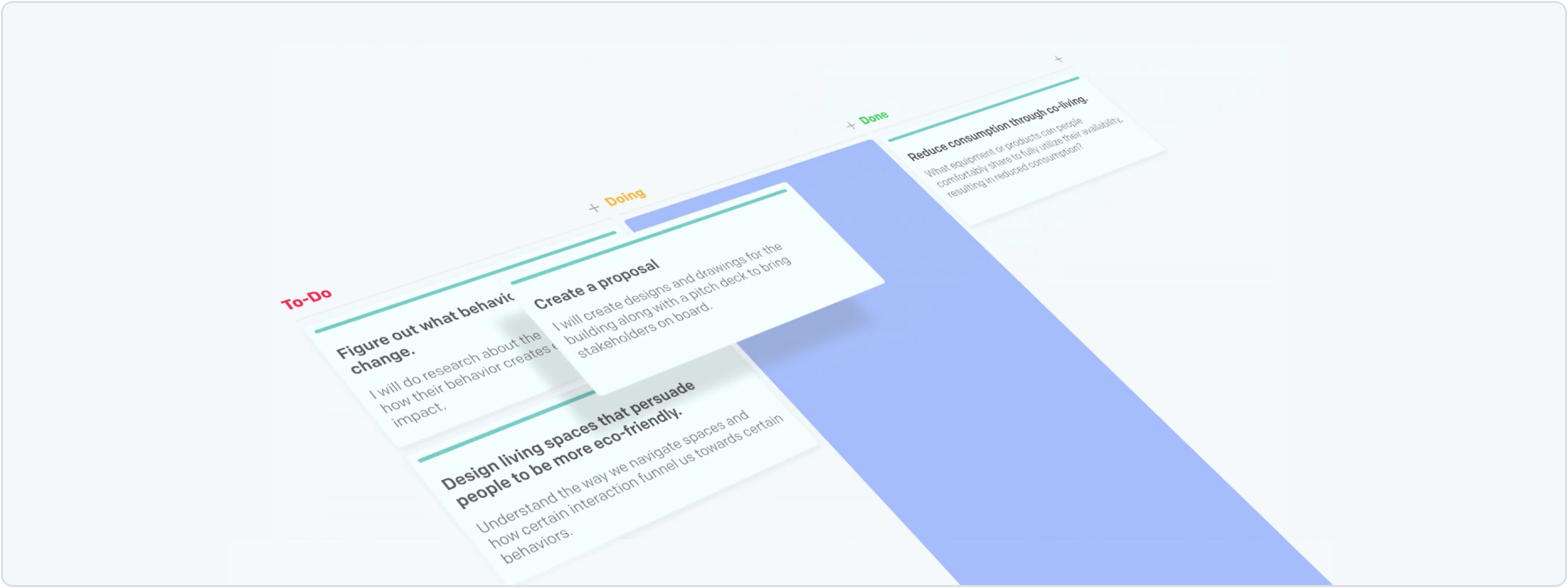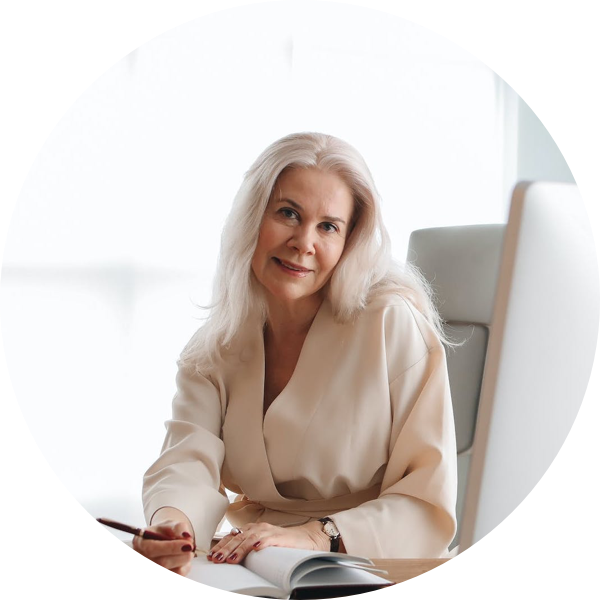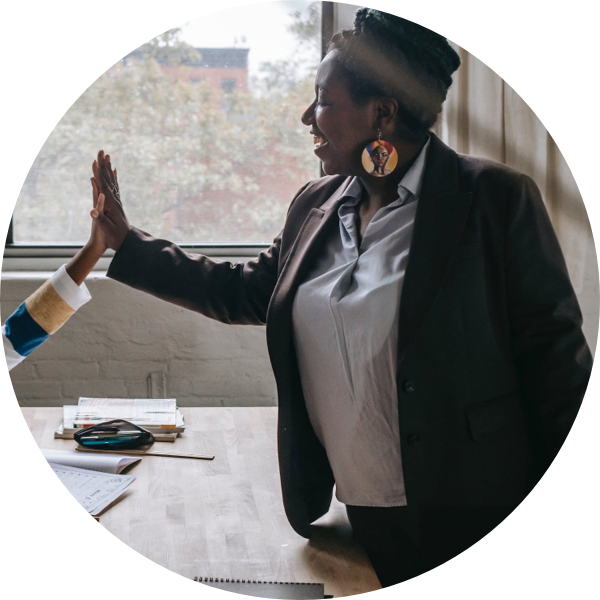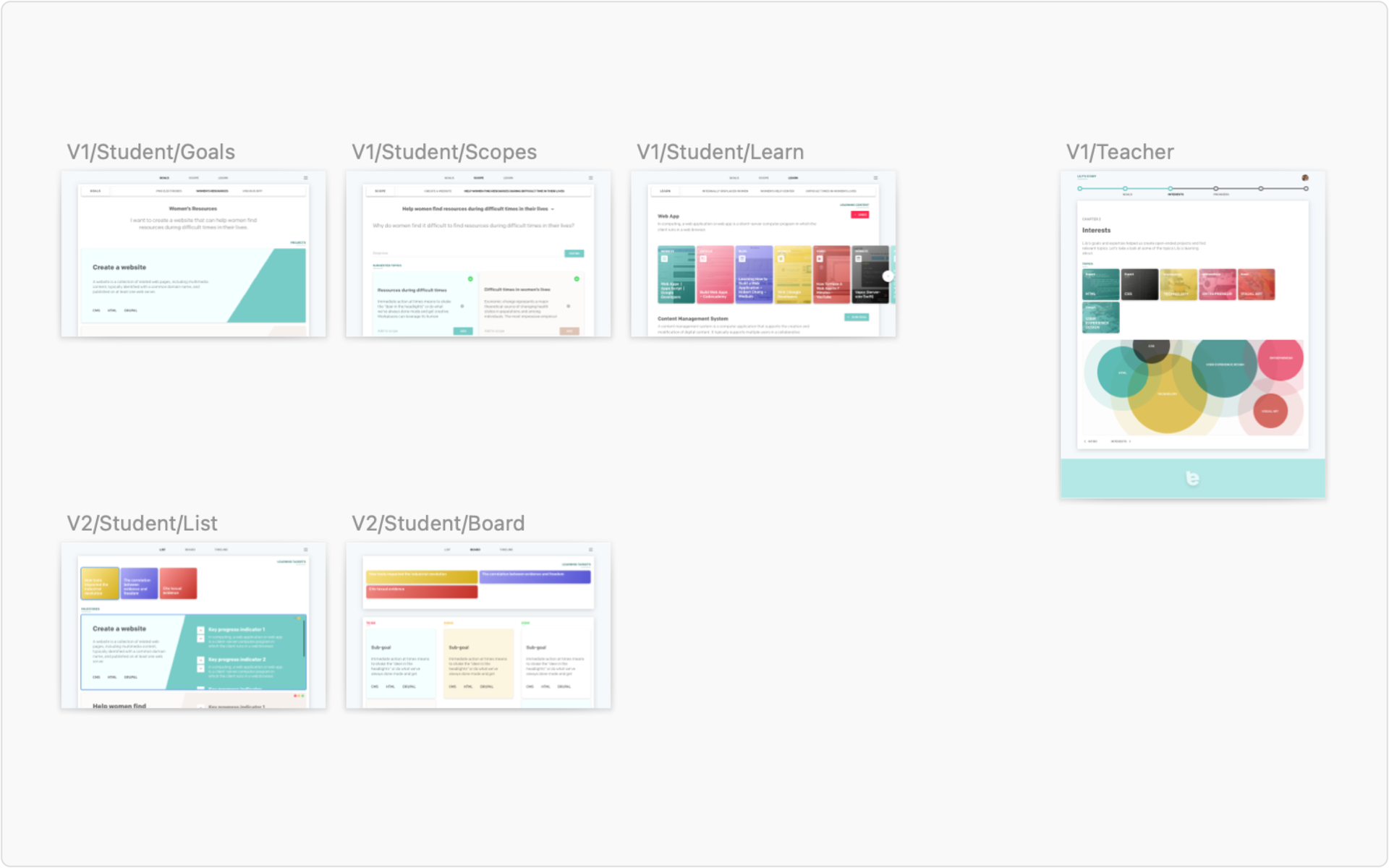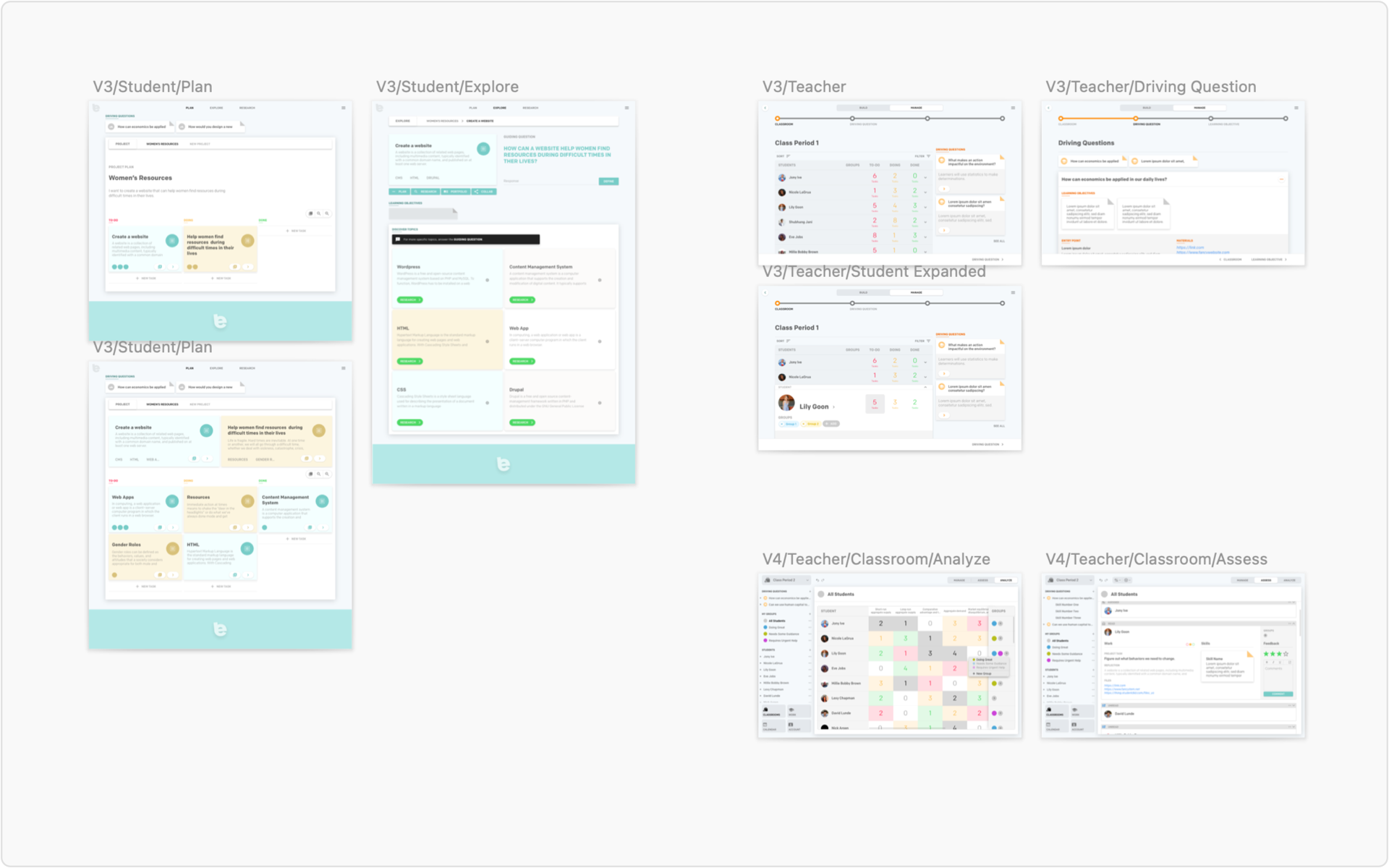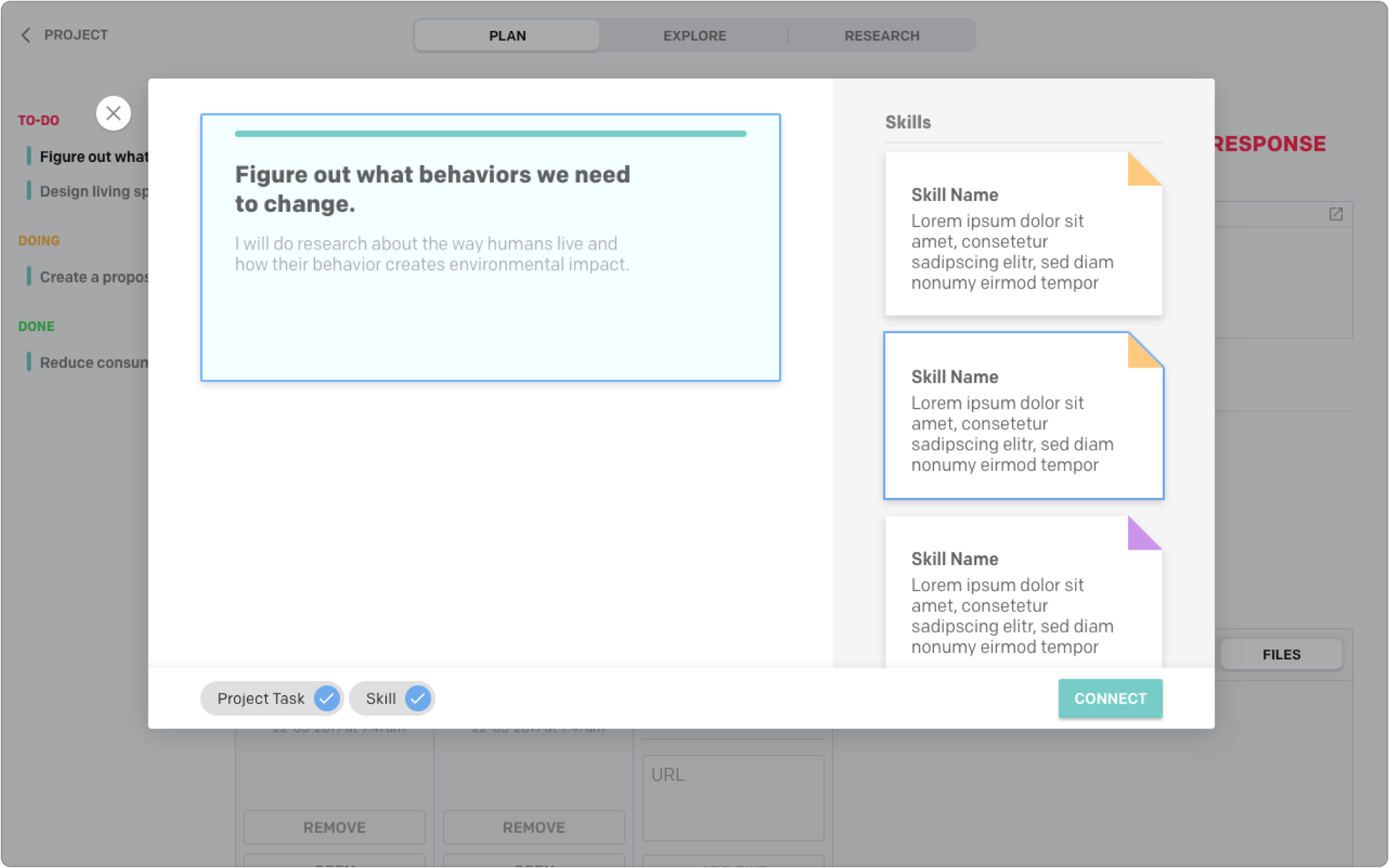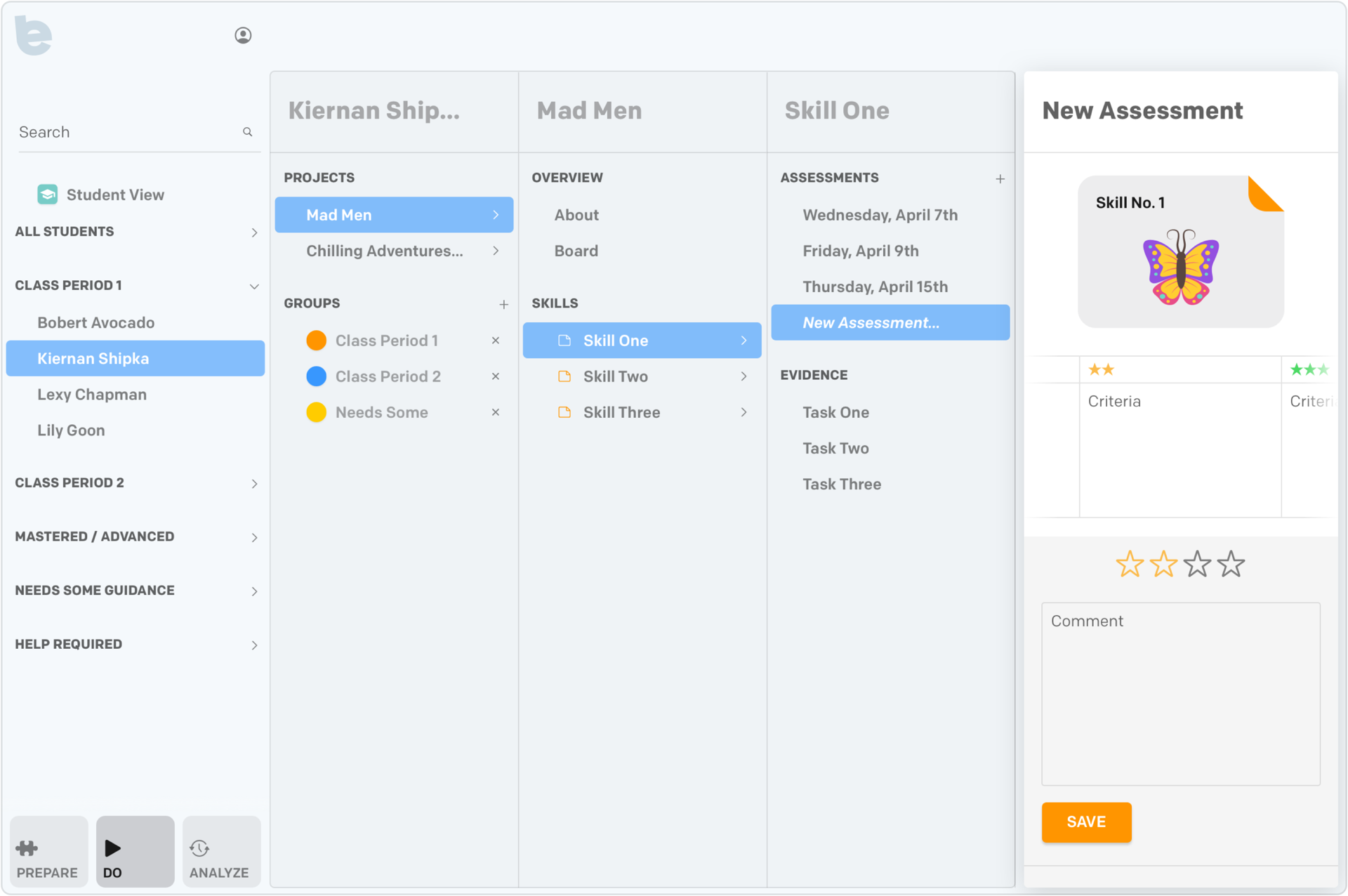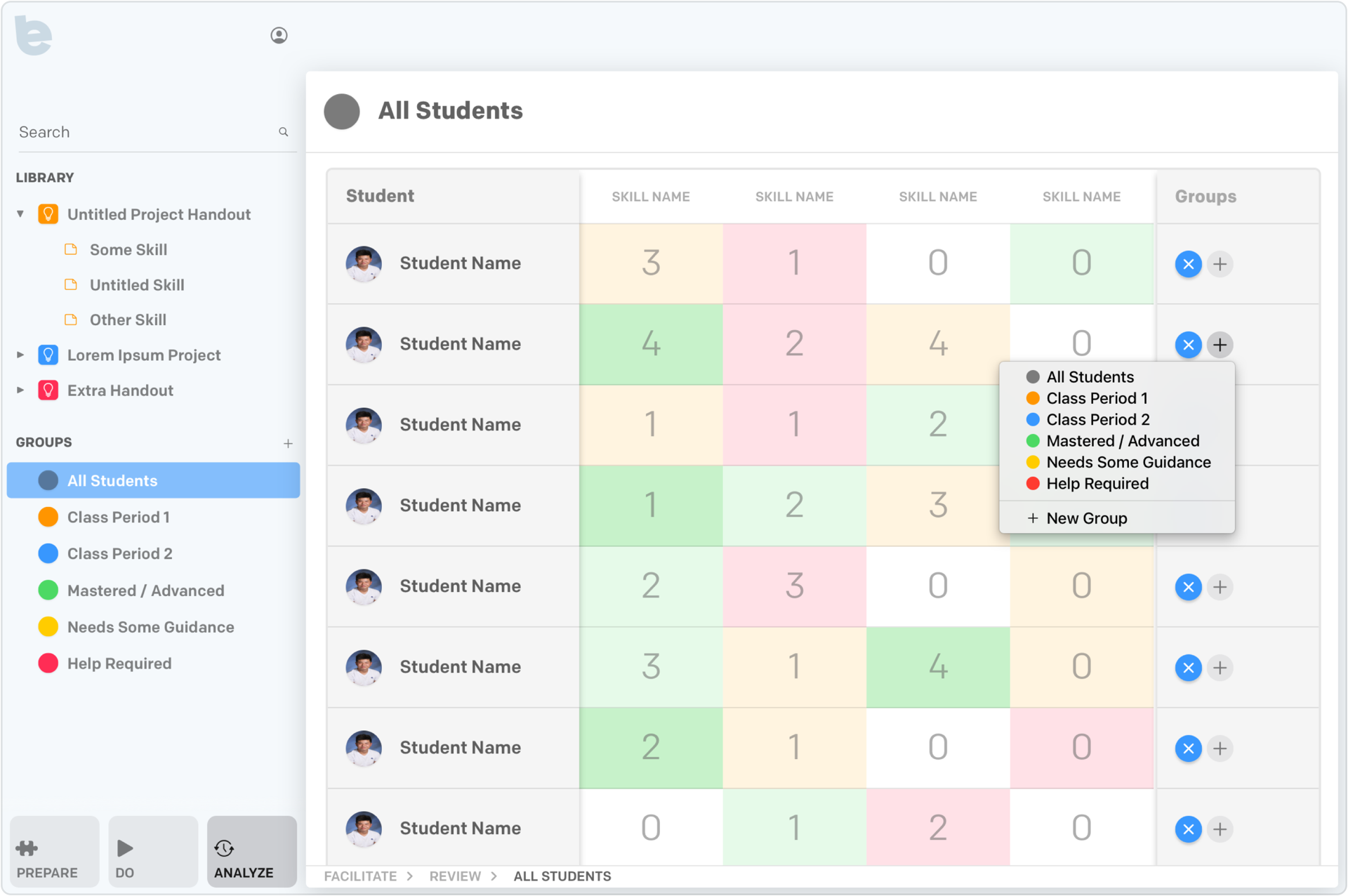Be Anything
A web app that turns boring lessons into a fun project.
Work
Research
Positioning
Design
Timeline
Mar 2017 - May 2021
Role
Founder
Introduction
In classrooms, learning by doing is called project-based learning. Project-based learning is a well-proven method of teaching. It increases student motivation, test scores, attendance rates, and teacher satisfaction with their jobs. Despite this, project-based learning is not the norm in most schools.
My Role
In 2017, I started Be Anything, a platform that simplified the day-to-day of project-based learning. I was the founder, designer, and one of the developers.
Problems
Keeping track of project work is complicated. Projects have a lot of moving parts and teachers have many projects to deal with. Knowing what every student in every class is up to is overwhelming.
It's difficult to give every student timely and relevant feedback. Students waiting for feedback can block progress and learning and collecting project artifacts to give feedback on is time consuming.
Assessing the process of project-based learning requires much more evidence than a quiz. Project-based learning is all about the process. It can be difficult to connect moments in a project to assessment criteria.
Goals
Keep track of progress on different projects.
Give timely and specific feedback on kids project work and skills.
Assess the process not just the end product.
Process
Research
Teachers typically don't answer cold emails from founders asking them to participate in a user research study. To get around this, I signed up for parent tours at every private school, using project-based learning, in NYC. During the tours, I would observe and ask a lot of questions. They would often invite me back to do product interviews at a later date.
During the interviews, I asked teachers to walk me through a typical project-based learning unit. They would articulate challenges that they faced regularly and I would ask them to provide specific instances and stories.
In addition to my visits to private schools, I also went to "Ed Camps". Ed Camps were free professional development conferences for public school teachers. Teachers could go and choose which topics they wanted to learn about. I hosted sessions on project-based learning and would use my sessions to learn about teacher's challenges.
Personas
Tech Coaches & Integrators
Teach coaches are an unofficial role in public schools. They're typically filled by a teacher who's well versed in edtech and has aspirations to be an administrator someday. They're responsible for training & implementing classroom technology with other teachers. They help other teachers plan lessons around the use of edtech tools.
Beginner to Intermediate Project-Based Experience
Teachers who've just learned about or are implementing project-based learning for the first time are always looking for resources on planning and assessing projects. They've usually had some amount of training but no real experience with the pedagogy.
Journey Map
Iterations
Early Prototypes
The early prototypes had much larger emphasis on the student experience than the teacher's. It was positioned as a project research tool.
The First Releases
The first versions of the product had many more teacher oriented features. The layouts were vastly different. The first one was laid out in there form of a paginated "story". The second was more "feed-like". In the end, the app eventually settled on a left-to-right layout.
What We Shipped
Student Experience
⏵ Driving Questions are used to introduce project units to students. They contain assessment criteria, an introduction on the unit, and whatever materials the teacher wants to share.
⏵⏵ Project Boards help students stay organized and communicate their project ideas with their teachers.
⏵ The Task Page is where students write reflections about their tasks and connect them to related skills.
⏵⏵ Adding Skills is incredibly simple. Multiple skills, from different driving questions, can be added to a task.
Teacher Experience
⏴⏴ New Assessments are created through a star ratings and a rubric that responds to user input and a comments section.
⏴ Previous Assessments are visible so the student and teach can discuss their progress over time.
⏴⏴ Student's Boards gives facilitators the ability to add and edit previous classes from their library to the schedule.
⏴ Analysis and Grouping can be saved
Reflections
Be Anything was a difficult business to run. In traditional ed-tech, the purchaser is rarely the user. Improving the user's experience doesn't directly convert into profit. Even though users loved the product, the sales cycle was too long. I ended up shutting Be Anything down and becoming the first product designer at Sora Schools.
In addition to there being a disconnect between user-experience and profit, edtech's threshold for MVPs is very high. In addition to compliance and integration with student information systems, there are multiple roles that need to be designed for. Between students, teachers, and admins, there are effectively three apps that need to be built. Most of my work in edtech, after Be Anything, took this into account by designing a shared user experience between roles.
